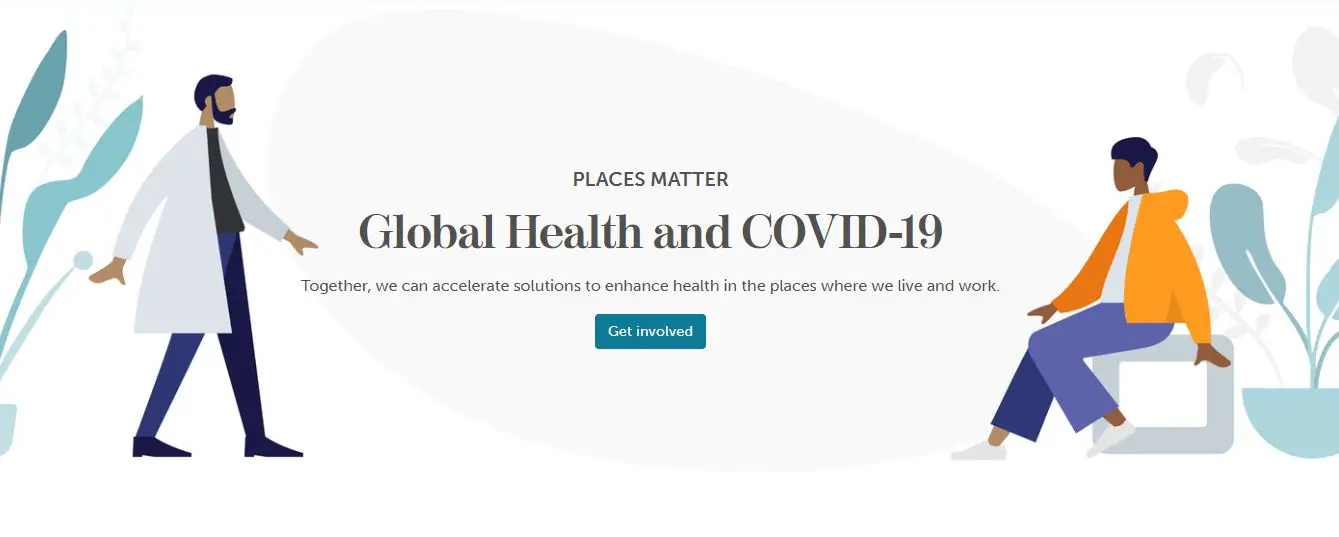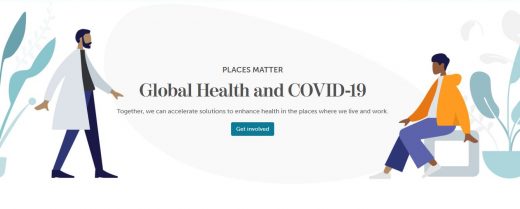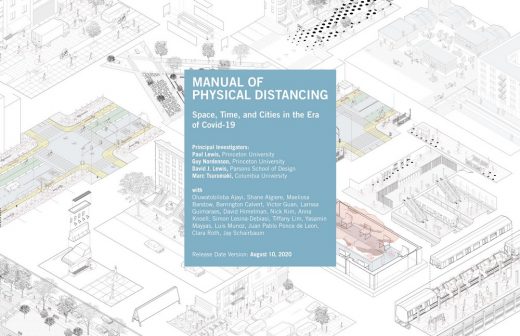IWBI Task Force on COVID-19 Advice, COVID-19 Lockdown working guide, Coronavirus crisis health and safety
IWBI Task Force on COVID-19
June 9, 2020
IWBI WELL Health-Safety Rating
International WELL Building Institute Launches WELL Health-Safety Rating for all Building and Facility Types
Expertise and insights from IWBI’s COVID-19 Task Force applied to the WELL Health-Safety Rating and other initiatives of the world’s leading certification body for healthy buildings.
(NEW YORK – June 8, 2020), The International WELL Building Institute (IWBI) announced today the launch of the WELL Health-Safety Rating for all building and facility types, an evidence-based, third-party verified rating focusing on operational policies, maintenance protocols and design strategies to address a post COVID-19 environment. The WELL Health-Safety Rating is one of the earliest outcomes of IWBI’s Task Force on COVID-19, a group of nearly 600 public health experts, virologists, government officials, academics, business leaders, architects, designers, building scientists and real estate professionals, which was established in late March to help guide IWBI’s response to the pandemic.
The WELL Health-Safety Rating provides a centralized source and governing body to validate efforts made by owners and operators. It leverages insights drawn from the IWBI COVID-19 Task Force, in addition to guidance on the spread of COVID-19 and other respiratory infections developed by the Centers for Disease Control and Prevention (CDC), the World Health Organization (WHO), the Department of Health and Human Services pursuant to the Occupational Safety and Health Act (OSHA), the National Institutes of Health (NIH), and leading academic and research institutions, as well as core principles already established by IWBI’s WELL Building Standard. Participation in the program requires submission of policies, protocols and strategies for third-party document review and annual verification.
“The WELL Health-Safety Rating is a sign of confidence that measures have been enacted to help support the health and safety of people entering spaces of all kinds, and that those measures have been mapped to scientific evidence and verified through a third-party review process,” said Rick Fedrizzi, chairman & CEO of IWBI. “By drawing on the proven strategies in WELL, we’re working from the best science available and that’s more important than it’s ever been.”
The WELL Health-Safety Rating will accept registrations in June from all types of buildings and facility typologies, including offices, restaurants, hotels, retail establishments, manufacturing plants, warehouses, sports stadiums, arenas, theaters and other entertainment venues, schools, multi-family housing, and many others. Current WELL-registered projects and WELL Portfolio participants can earn the WELL Health-Safety Rating as part of their already established certification efforts.
“Our buildings and the people who tend them are our first line of defense for keeping us safe and healthy,” said Rachel Gutter, president of IWBI, “and the current pandemic has confirmed that health is a material economic consideration of the first order. These two simple truths stand at the nexus of our work to date and will, along with the hard evidence that is mounting, inform all our decisions about the critical need for better buildings, more vibrant communities and stronger organizations going forward.”
The WELL Health-Safety Rating is the first of many anticipated outcomes informed by the work of the IWBI COVID-19 Task Force that will be introduced in the coming months. Members of the Task Force include 17th Surgeon General of the United States Dr. Richard Carmona, former Robert Wood Johnson Foundation President and CEO Dr. Risa Lavizzo-Mourey, UCLA’s Dr. Jonathan Fielding, Harvard School of Public Health’s Joseph Allen, and environmental scientist Allen Hershkowitz Ph.D., among others.
“The Task Force has received overwhelming support and input from all over the world,” said Dr. Richard Carmona, 17th Surgeon General of the United States. “People are learning that buildings themselves can be powerful vehicles for protecting and improving public health. All of us individually have a responsibility to the collective whole to use every tool, including our buildings and our sense of community, to keep ourselves and those we care about safe.”
“The impacts of the virus have been many, but not the least is the anxiety of uncertainty about where people feel safe,” said Despina Katsikakis, Head of Occupier Business Performance at Cushman Wakefield and member of IWBI’s COVID-19 Task Force. “Achieving this new WELL Health-Safety Rating is a great way to increase confidence that evidence-based steps to do the right thing have been taken to keep health front and center as the economy reopens.”
Recently, IWBI released an interim Strategies from the WELL Building Standard to Support in the Fight Against COVID-19, another key outcome of the Task Force. Grounded in the foundation of WELL, these evidence-based strategies provide an actionable framework for organizations and communities as they advance a safer and healthier future. IWBI is expanding these strategies into Guidelines for Preparedness and Prevention, Resilience and Recovery in relation to COVID-19 and other respiratory infections. The Guidelines will provide insight into how the current strategies have evolved, as well as indicate areas where further work is required.
Since its inception, IWBI has been driving forward the convergence of building science and health science. Registrations under the WELL Building Standard, the premier standard for healthy real estate, have already surpassed 550 million square feet across 62 countries. The WELL Building movement has been further amplified by over 11,000 WELL Accredited Professionals (APs) and registrants across the globe.
Gutter noted that upon achieving the designation, IWBI will issue the project a WELL Health-Safety Rating seal.
7 Apr 2020
IWBI Task Force on COVID-19 and Other Respiratory Infections
IWBI Announces New Co-chairs and More than 225 Members of the Task Force on COVID-19 and Other Respiratory Infections: Prevention and Preparedness, Resilience and Recovery
Cushman & Wakefield’s Despina Katsikakis, CABR’s Dr. Wang Qingqin, NUS’ Dr. Lam Khee Poh and SUNY’s Joanne Mahoney join group of co-chairs convening more than 225 experts to advance the role of buildings and communities in protecting, enhancing health
(NEW YORK – April 6, 2020) – The International WELL Building Institute (IWBI) today announced the addition of four renowned industry, academic and public health leaders from the U.S., United Kingdom, China and Singapore as the newest co-chairs of its Task Force on COVID-19 and other Respiratory Infections: Prevention and Preparedness, Resilience and Recovery.
They join expert co-chairs from the U.S. and others from China who will help define the critical role buildings, organizations and communities play in reducing the health burden from this and other infectious diseases.
Adding to the expertise of the Task Force as co-chairs are Despina Katsikakis, international partner and head of occupier business performance at Cushman & Wakefield; Dr. Wang Qingqin, vice president of China Academy of Building Science (CABR); Dr. Lam Khee Poh, Provost’s Chair professor of Architecture and Building and dean, School of Design And Environment, National University of Singapore, and Joanne Mahoney, chief operating officer at the State University of New York College of Environmental Science and Forestry in Syracuse, New York.
Additionally, more than 225 experts from public health, government, academia and businesses worldwide, as well as the architecture, design, building science and real estate communities, have heeded a global call to action to contribute their knowledge during this worldwide public health emergency.
With Task Force members hailing from dozens of countries, they represent strong engagement across sectors, regions and industries and stand ready to share insights about protecting global health through building design and operations, as well as organizational policies and practices.
Task Force members are participating from some of the most innovative and respected Fortune 500 companies, global architectural and engineering firms, real estate service firms, manufacturing companies, school districts, federal agencies, cities, trade associations, research institutions and national non-profits.
“We have been truly overwhelmed by the passionate response of our global community to raise their hands and get involved in the Task Force on COVID-19,” said IWBI Chairman and CEO Rick Fedrizzi. “This Task Force provides a mechanism to focus on this immediate challenge and collect and apply the expertise and insight of hundreds of leaders from their respective fields.”
The work of the Task Force is two-fold, said Fedrizzi. First is to identify and develop a set of signature deliverables and resources, including guidelines for individuals, organizations and communities to help them better integrate actionable insights and proven strategies into how they manage both their buildings and their organizations.
Second, the Task Force will assess ways in which the WELL Building Standard (WELL) itself can be further strengthened so the system, which touches more than a half-billion square feet of space across 58 countries, can best continue to support prevention and preparedness, resiliency and recovery in this critical moment and into the future.
The list of COVID-19 Task Force members is publicly available. They will collaborate on this fast-tracked effort through an innovative community portal that will serve as the hub for the work of the Task Force and enable digital crowdsourcing from a global community of experts across subject matters.
“Our team moved quickly and built an online portal to facilitate dialogue amongst hundreds of experts, in dozens of countries, 24 hours a day over the next month,” said Rachel Gutter, president of the International WELL Building Institute. “We are confident the platform fits the purpose and will allow us to dramatically expedite the creation of the resources and guidance we so desperately need.”
Gutter noted that the importance of moving quickly to translate actionable strategies into practice isn’t lost on this group. “The public health professionals at the table remind us that there is no time to waste.”
About the International WELL Building Institute
The International WELL Building Institute (IWBI) is leading the global movement to transform our buildings, communities and organizations in ways that help people thrive. The WELL v2 pilot is the latest version of its popular WELL Building Standard (WELL), and the WELL Community Standard pilot is a district scale rating system that sets a new global benchmark for healthy communities.
WELL is focused exclusively on the ways that buildings and communities, and everything in them, can improve our comfort, drive better choices, and generally enhance, not compromise, our health and wellness.
IWBI mobilizes the wellness community through management of the WELL AP credential, the pursuit of applicable research, the development of educational resources, and advocacy for policies that promote health and wellness everywhere. IWBI is a participant of the United Nations Global Compact, the world’s largest corporate citizenship initiative, and helps companies advance the UN Sustainable Development Goals (SDGs) through the use of WELL. More information on WELL can be found here.
International WELL Building Institute, IWBI, the WELL Building Standard, WELL v2, WELL Certified, WELL AP, WELL, WELL Portfolio, The WELL Conference, the WELL Community Standard and others, and their related logos are trademarks or certification marks of International WELL Building Institute pbc in the United States and other countries.*
Previously on e-architect:
Covid-19 Resources for Architectural Profession
Manual of Physical Distancing – Spatial Impact of COVID19
APM online resources for Covid-19 outbreak
APM Covid-19 outbreak online resources
How Buildings Can Reduce Health Burden of COVID-19
Buildings Can Reduce Health Burden of COVID-19
Architecture and Pandemics: Covid-19 Hermetic Verticalism
Covid-19 Quarantined Architects Database
Database for Quarantined Architects
Impact of COVID-19 on the London Property Market
Coronavirus Impact on Property Market Article
Remote Working During the COVID-19 Pandemic
Comments / photos for the IWBI Task Force on COVID-19 – Healthy Working During Coronavirus Crisis 2020 page welcome



